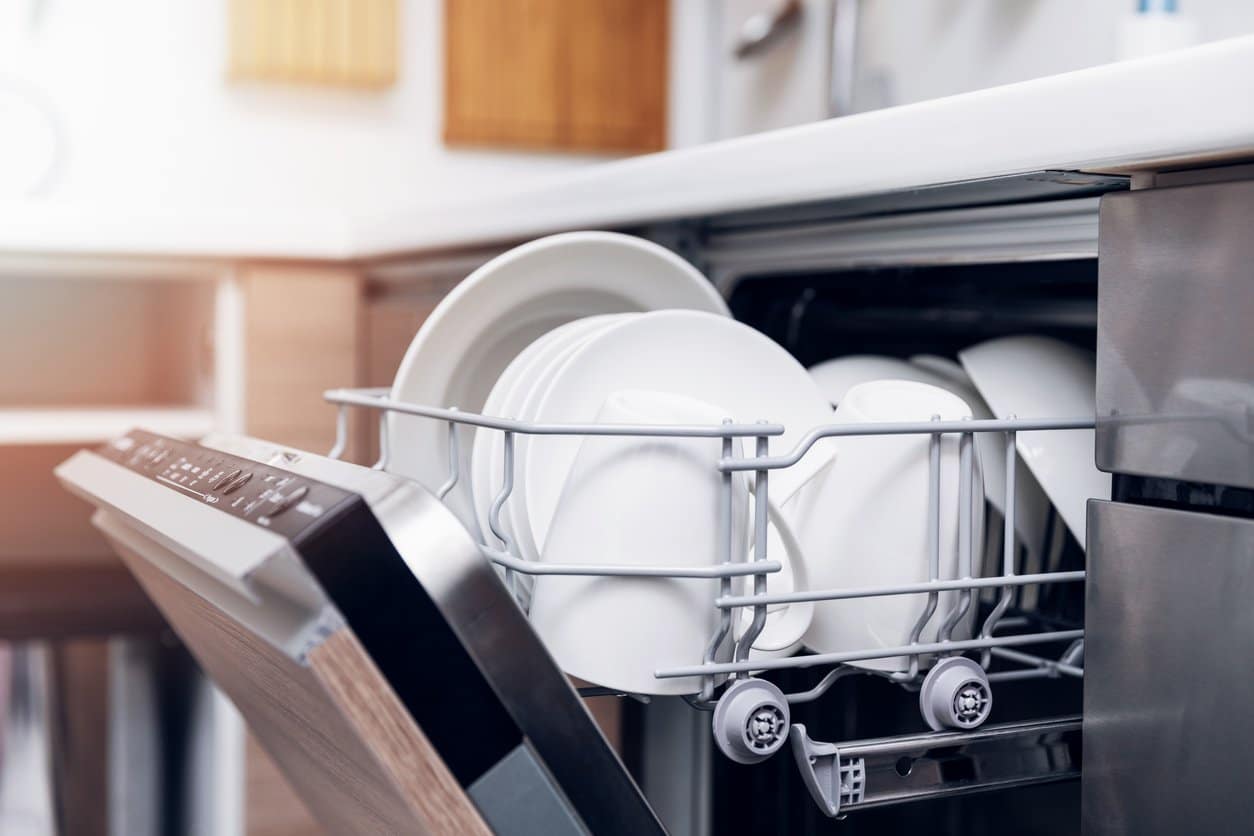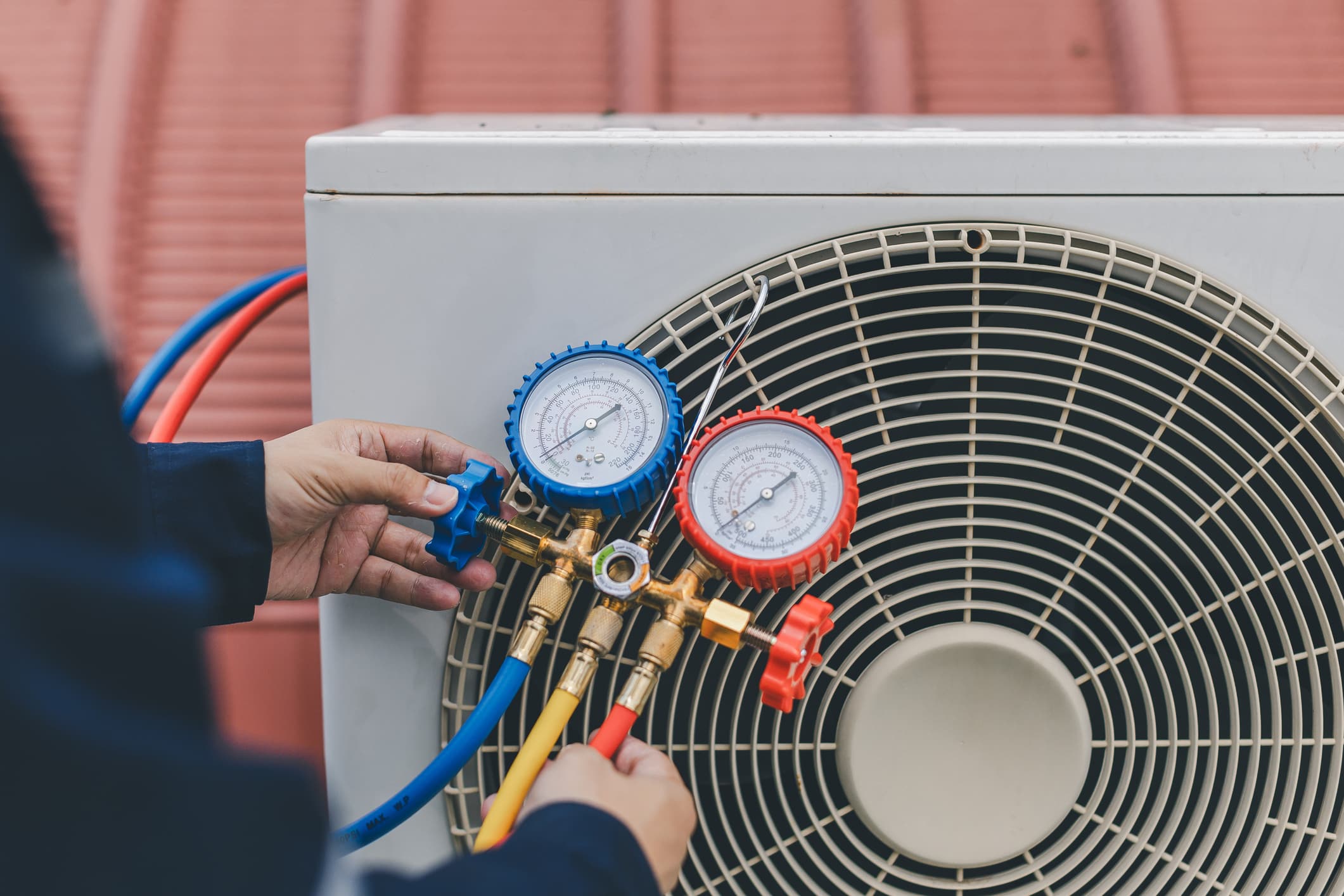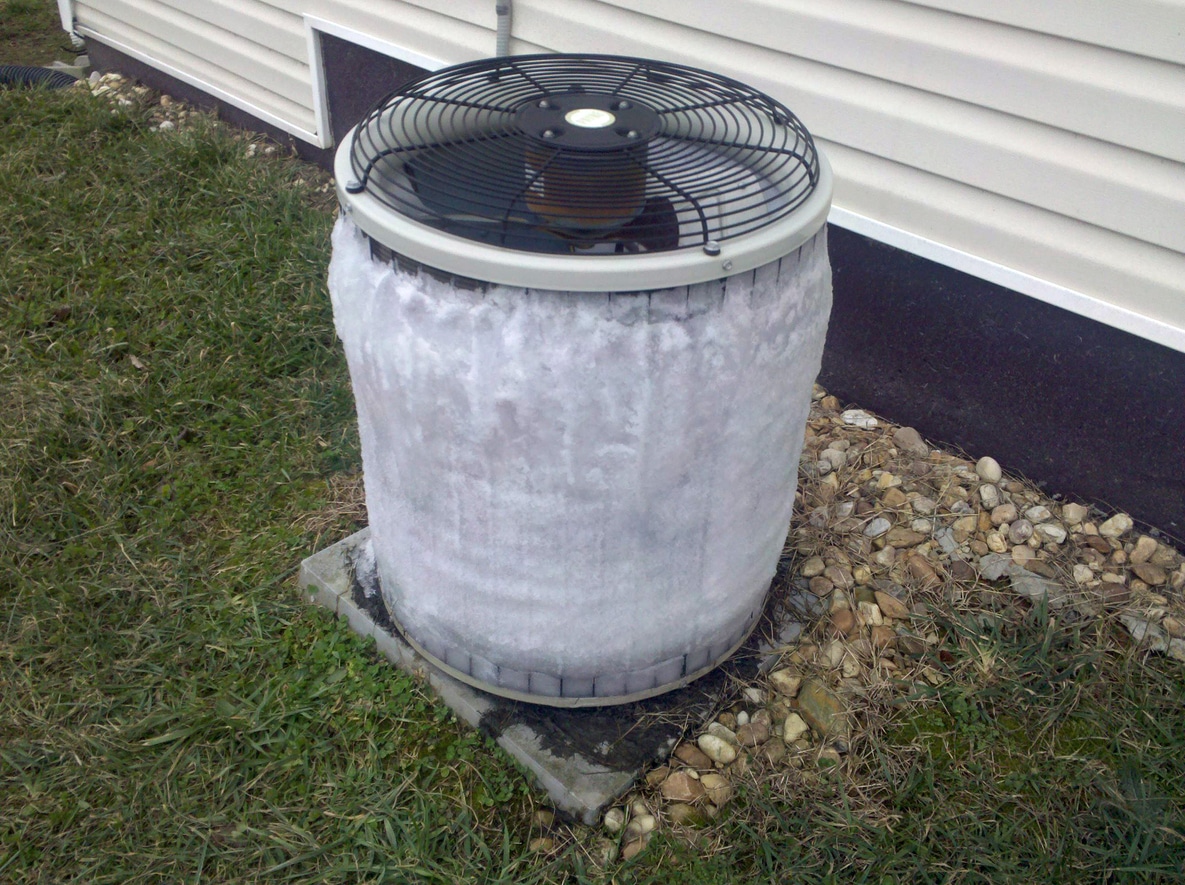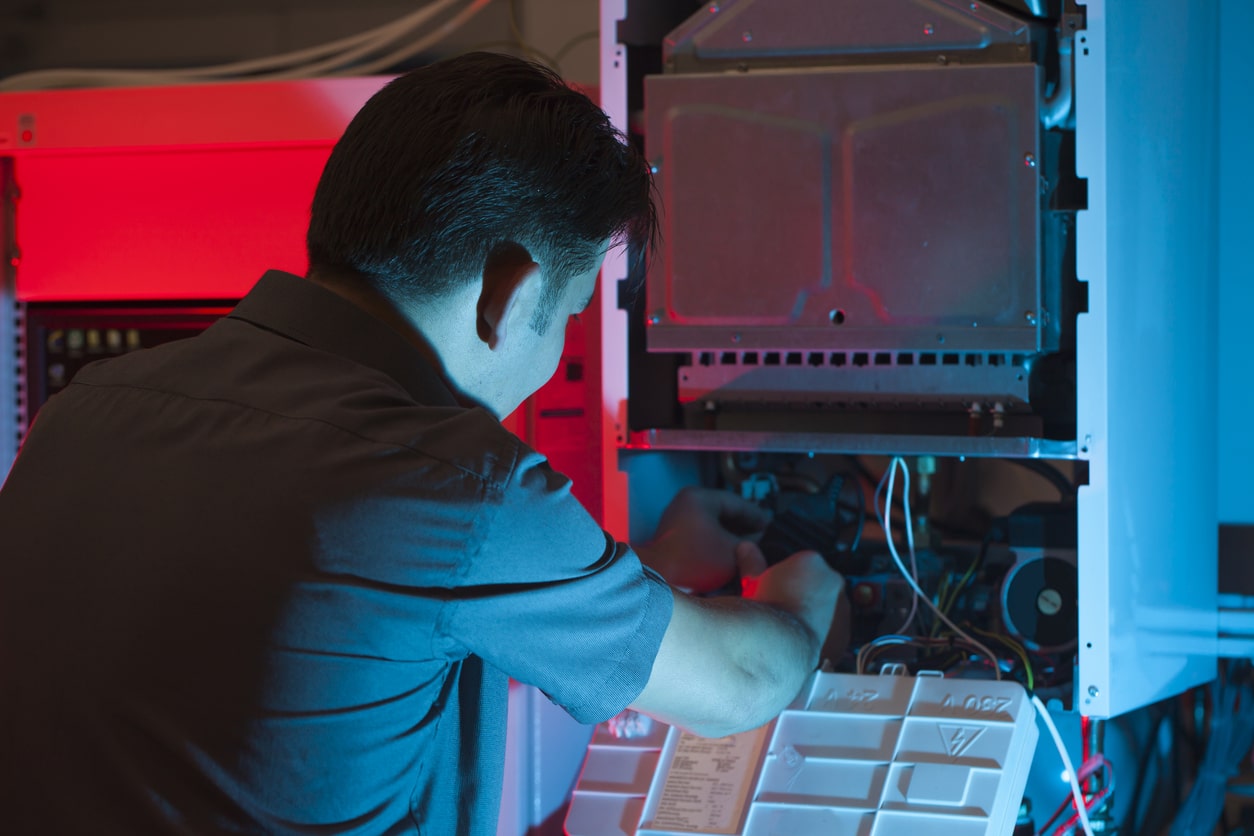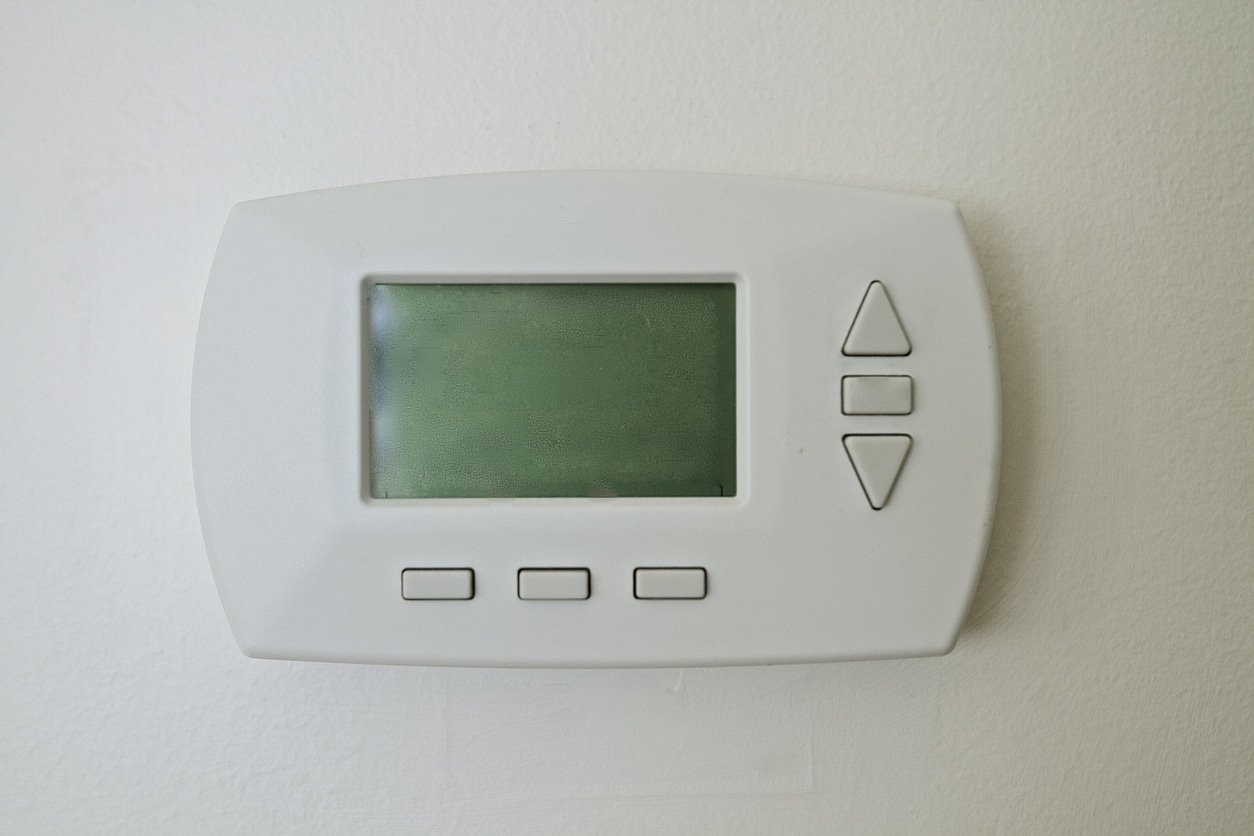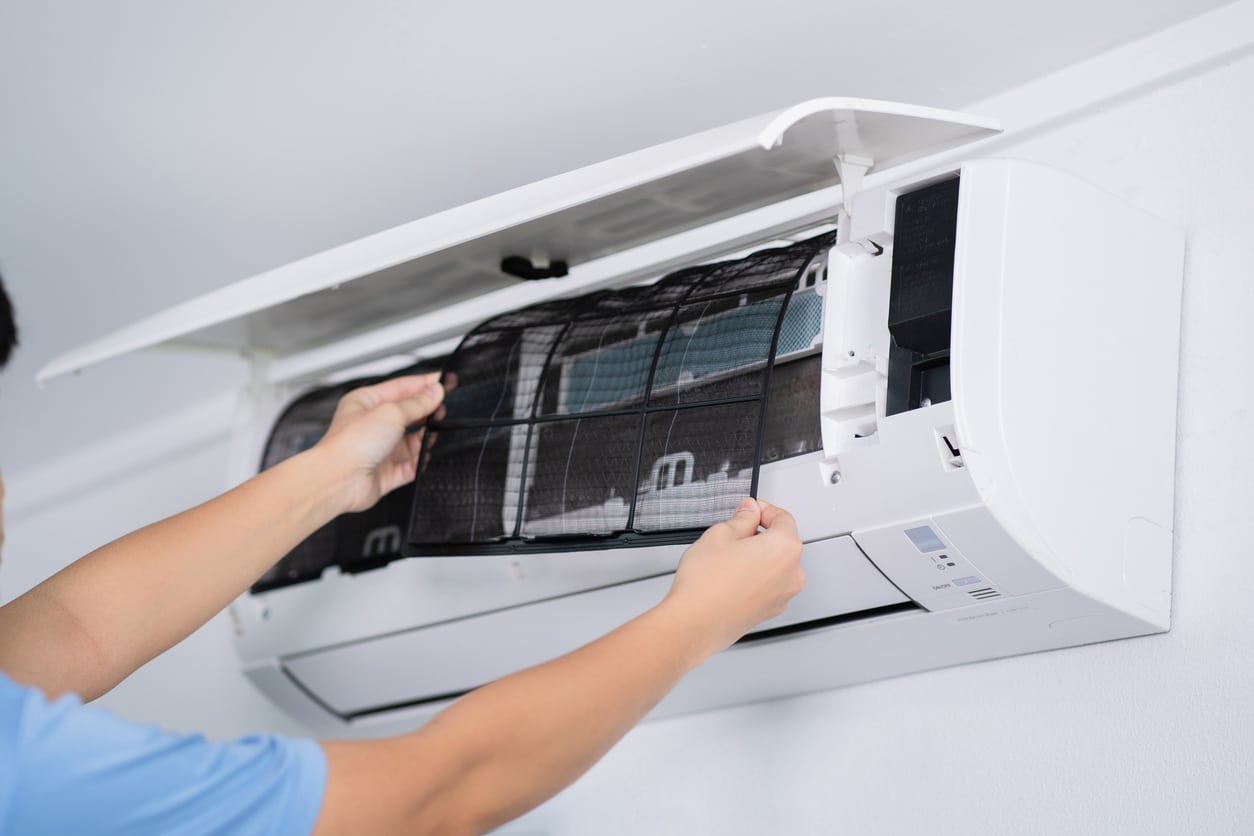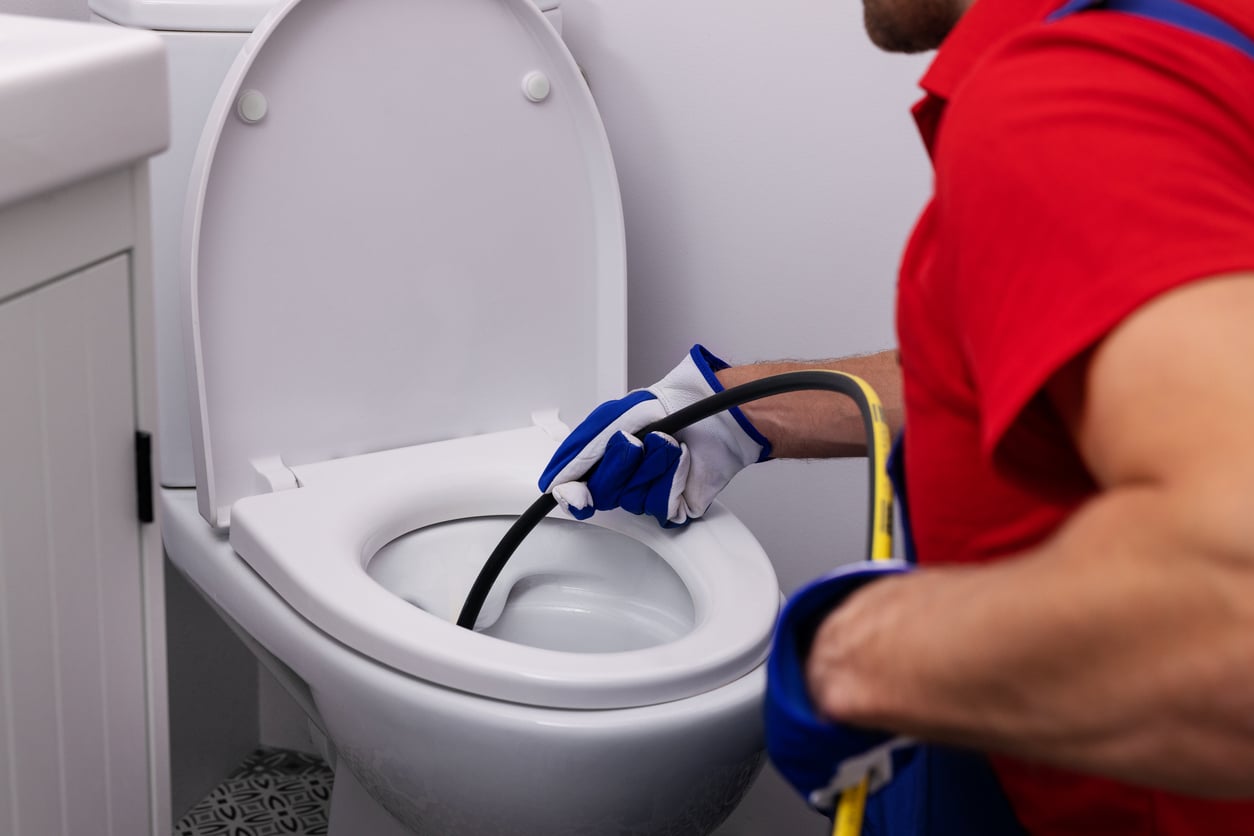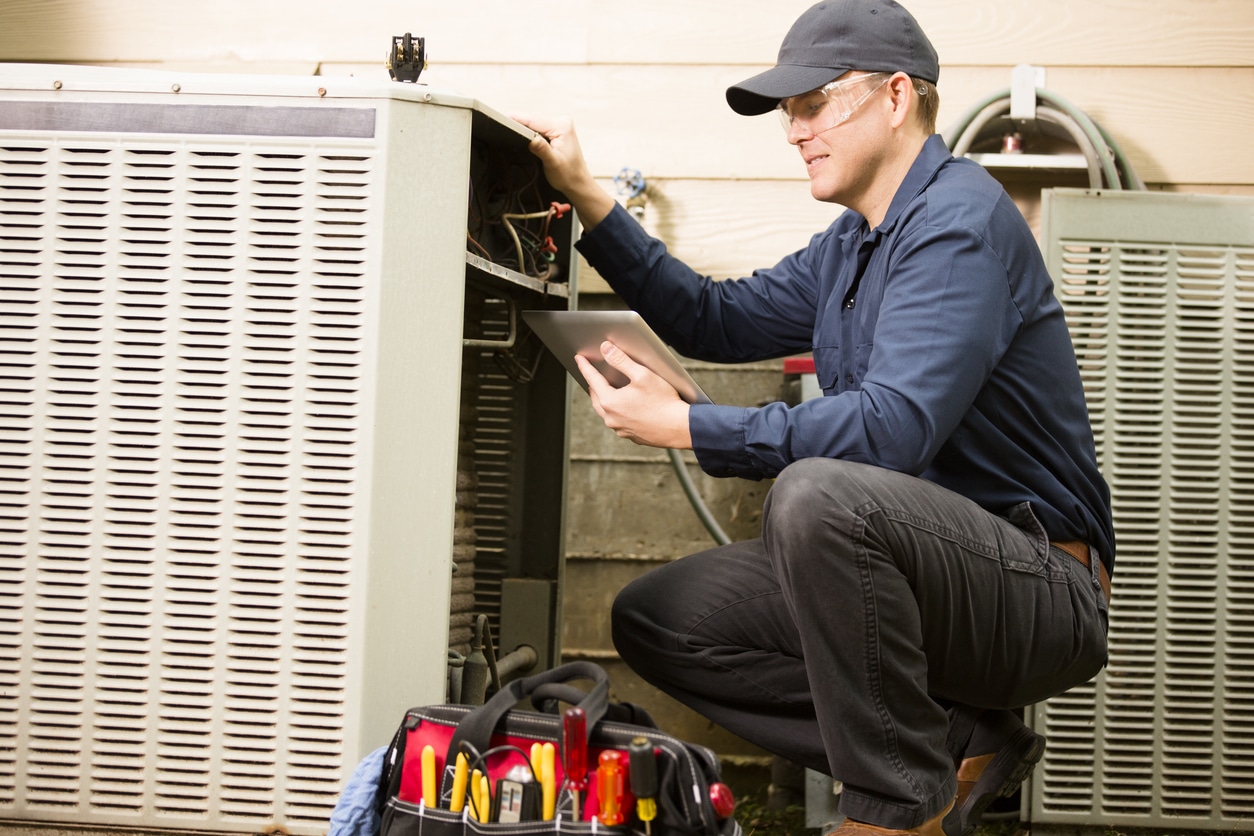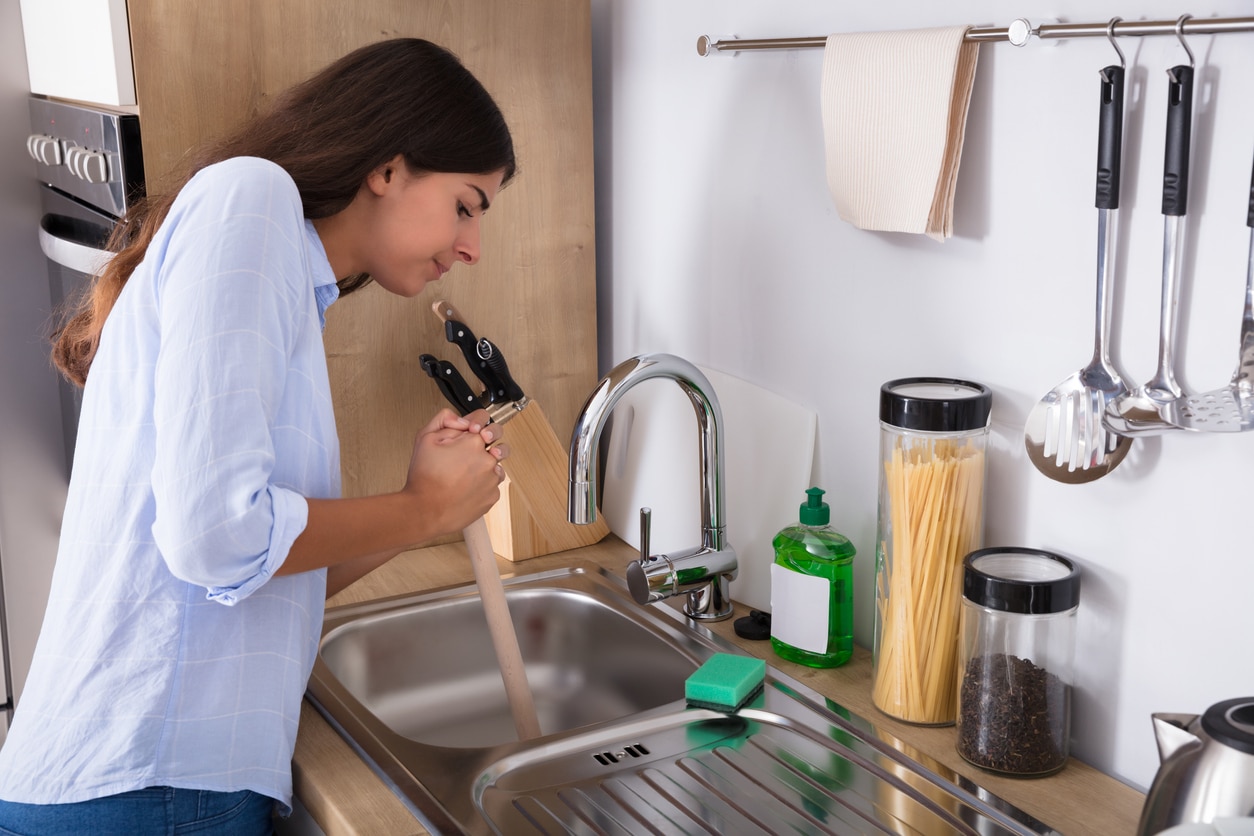Where would you be without your dishwasher? Although you can survive without a dishwasher in Stewartstown, you probably have come to depend on it. Having a dishwasher is a convenience that you may not want to live without. Unfortunately, it’s not perfect and could develop problems. One of the most common issues is a failure to drain. If this is happening to you, there are a few things you should know about plumbing maintenance and your dishwasher.
How a Dishwasher Works
Before you start troubleshooting, you should understand the basics of your dishwasher plumbing. First, the dishwasher adds water and heats it up to the right temperature. Then, it opens up the detergent dispenser when the time is right.
Your dishwasher shoots water through jets to clean your dishes, and drains the dirty water. It sprays more water on the dishes and goes through another drain cycle. If you set your dishwasher to heated dry, the appliance heats up until your dishes are no longer wet.
To make your life easier, dishwashers are self-monitoring. They have timers to regulate the cycles and sensors to detect temperature. When the water level gets too high, the draining process kicks off. This prevents overflowing and saves your home from a flood.
Reasons a Dishwasher Doesn’t Drain
It’s not uncommon for dishwashers to fail to drain. Although the sensor to the drain cycle might work, the water could fail to drain and prevent your appliance from working.
Your dishwasher has a pump and a screen. When it’s time for your dishwasher to drain, the pump pushes water through the screen and into your plumbing. If the screen is clogged, water won’t leave the dishwasher. Meanwhile, the water won’t go through the screen and into your pipes if the pump doesn’t work.
Therefore, two common causes of a dishwasher failing to drain are a clogged screen and a broken pump. Another possibility is a clog in your plumbing. If the pipe connected to your dishwasher has a blockage, the water won’t be able to leave your dishwasher.
What You Can Do to Help
Although you should leave the plumbing to the professionals, there are a few things you can do to handle the water in your dishwasher. If you have a garbage disposal, try running it. The dishwasher’s drain hose connects to the disposal drain. When the disposal has unground food in it, the dishwasher may not be able to drain.
You can prevent this from happening by running your disposal frequently and allowing the water to run after you use the disposal. While this won’t prevent other issues from affecting your dishwasher, it prevents the disposal from clogging up the line.
In the event you have no garbage disposal, your dishwasher connects to a hose attached to an air gap. When debris clogs up the air gap, the dishwasher won’t drain. Check the air gap by twisting it and removing it. If there’s debris inside it, clean it out with a brush and replace the air gap.
Other Troubleshooting Tips
To find out if there’s a different issue with your appliance, place towels around the base of the dishwasher. Pull out the tray from the bottom and use a scoop to get water out of the dishwasher. When the water gets too low, use towels to absorb the remaining water.
At this point, you can look for obvious issues. Do you see anything that might be blocking the drain? Check the drain basket and the screen for blockages. Of course, you’re not a plumber. You may not know what to look for, and that’s fine.
When the plumber arrives, they’ll do the troubleshooting. Don’t try to take anything apart or make a DIY fix. Instead, know that your plumber will safely perform all necessary repairs. You don’t need to worry about voiding a warranty, suffering from an injury, or making the situation much worse.
When Should You Call a Plumbing Repair Service?
As soon as you suspect a problem with your dishwasher, call a plumber for assistance. First, the issue may seem minor. You can get away with washing your dishes by hand for a few nights. However, don’t make the mistake of putting off your dishwasher repair.
The longer you wait to fix your dishwasher, the greater the potential for damage. As a worst-case scenario, you could have a flood in your kitchen. The water damage may lead to thousands of dollars in repairs.
With that in mind, don’t hesitate to call a plumber for a dishwasher repair. If you want to put your mind at ease and prevent a plumbing emergency, let a plumber assess the situation and fix your dishwasher.
Pay Attention
If you pay attention to your dishwasher and plumbing, you might notice a problem before it results in a costly repair. For instance, you might notice your dishwasher draining slowly or making a strange noise.
By paying attention to your plumbing, you can identify issues before they lead to a breakdown. Every so often, watch your sink drain water. Does it seem slow? Listen to your dishwasher and make a note of the sound it makes. Being in tune with your appliances and plumbing allows you to stay ahead of your repairs.
Do You Know Who to Call for a Repair or Plumbing Maintenance?
When your dishwasher has trouble, do you know who to call? If you don’t already have a plumber you can trust, it’s time to start researching. Whether you have an issue with your dishwasher, kitchen sink, or garbage disposal, you can be sure you’ll need an experienced plumber at some point.
There are many local plumbers, so finding the right one for the job can seem overwhelming. Before you make your pick, research your options. Look for a company with a long history of success. A botched repair or an inaccurate diagnosis could cost you significant money.
Here at Reliability Home Services, we strive to give you excellent service. You can trust us with your clogs, broken dishwasher, or plumbing maintenance in Stewartstown. To learn more, call us today.

